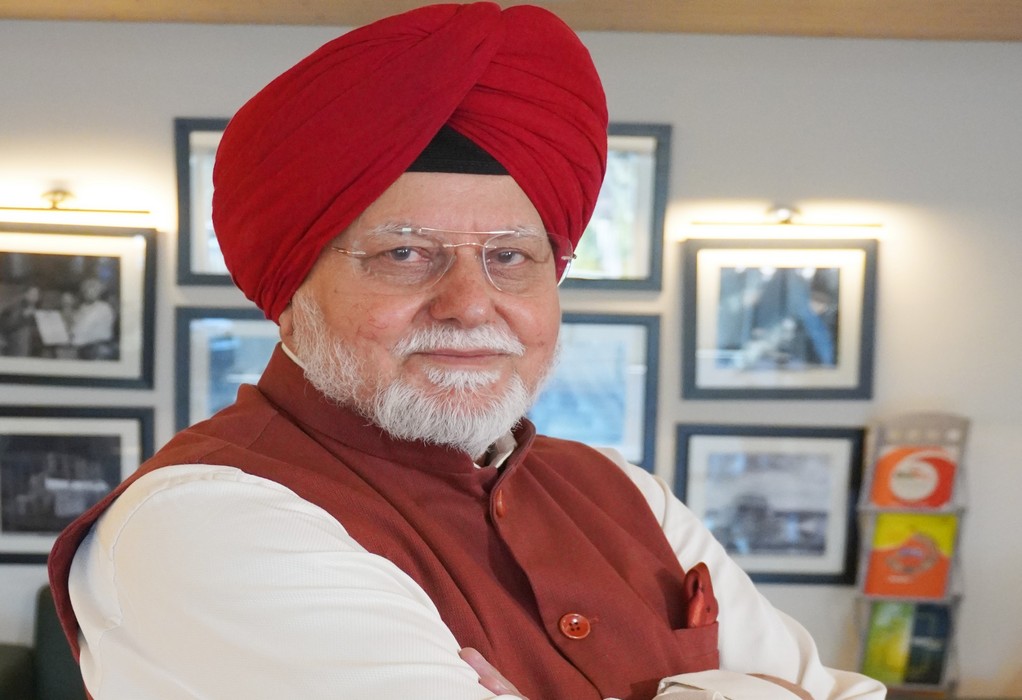According to a study boilers emit twice as much CO2 as all power stations. Industrial steam boilers are used to generate steam for process applications and/or to generate electricity for the plant. Fuels commonly fired in steam boilers are fossil fuels. Harjinder Singh Cheema, Chairman, Cheema Boilers Ltd (CBL), in an exclusive interview with Future Fuels has disclosed how his company is getting prepared for the fuel transition.
What type of fuel you currently use for operations?
We are leading boiler manufacturing company and using all type of non-conventional energy sources to produce steam. All type of agriculture residue including rice straw (stubble burning) and cane trash as fuel
After the recent COP26 summit at Glasgow there seems to be a shift in the fuel policy by governments to move towards using green fuels across the industries, will it have any effect on your business?
Considering that, we are working on development of green hydrogen as alternative fuel.
What role can the boilers play in the transition to a net zero emissions economy?-
Boilers play a major role in in this matter.
What is your vision for the boilers in the coming years from a sustainability standpoint?
Distillery waste slope fired incineration boiler: As we know govt. of India has allowed addition of ethanol in petrol and diesel with the result number of distilleries are producing this product from sugarcane molasses. To produce 1 lakh Lt of ethanol 10 lakh Lt of water is wasted/polluted. This dirty water if enters a river kills fish and if put on land the land goes barren. We have come out with a highly economical solution to this problem. Where we concentrate this dirty water and fire in boiler as fuel to produce power. This is 1st research worldwide and patented by us.
The technology has following advantages:
- Water Saving: Since we are using evaporation technology for concentration of distillery effluent. In this process we get 50 per cent water recovery. Thereby, we need to draw only 50 per cent water from the land i.e., for a 100 KL distillery we need to draw 5 KL instead of 10 KL. Thus there is a huge saving as the distillery capacity ranges between 100 KL and 300 KL/ day.
- Fuel Saving: We are using only 25 per cent as support fuel and rest is replaced with this concentrated effluent. Thereby, fuel saving to the tune of 75 per cent in case of molasses based distilleries.
- Power Saving: Since we are producing total steam at high pressure and passing through turbine. Thereby, total distillery electrical load is replaced by this bi product power.
Distillation of Ethanol from rice straw: We, along with a Pune company, are jointly doing this project with Indian Oil Corporation at Panipat wherein we will produce ethanol after fermentation from rice straw. This will generate ethanol directly from rice straw. Thereby the rice straw will fetch high value and solve today’s pollution problem of rice straw burning.
The technology has following advantages:
- Straw burning & air pollution: In this technology 4-5 kg of rice straw will generate 1 lt of ethanol which will be added into petrol and diesel. Thereby, fetching high price which will automatically get transferred to the producer farmers and this problem of straw burning in fields causing air pollution shall be eliminated from root. This is another step to eliminate the problem from root as we are replacing the precious fuel like coal and rice husk, with this problematic product the commercial use is already demonstrated on above stated boiler in the paper mills and proved successful.
- Burning of rice straw in boiler: We have come out with the technology wherein rice straw bales are directly fired into the boiler in a specially designed furnace without any pre-treatment or shredding. We already have 75 TPH 67 kg boiler working on this furnace and many more in line to deliver. This is another step towards control of straw burning issue. This is a highly viable project as the fuel cost of boiler is reduced to less than half.




Recent Posts
DNV Grants Approval in Principle for New Ammonia Bunkering Vessel Design
Proteus Launches Modular Hydrogen Fuel Cell System for Maritime Sector
Van Oord Unveils Boreas, World’s Largest and Most Sustainable Offshore Wind Installation Vessel
New methanol-fuelled vessel ‘Berlin Maersk’ to enter service
NMPA wins greentech global environment award
CMA CGM in negotiations with Indian shipyards for LNG-powered shipbuilding
L&T to Develop Green Hydrogen and Ammonia Projects in Kandla
Pan Ocean Orders Two Eco-Ready VLCCs from HD Hyundai Heavy Industries